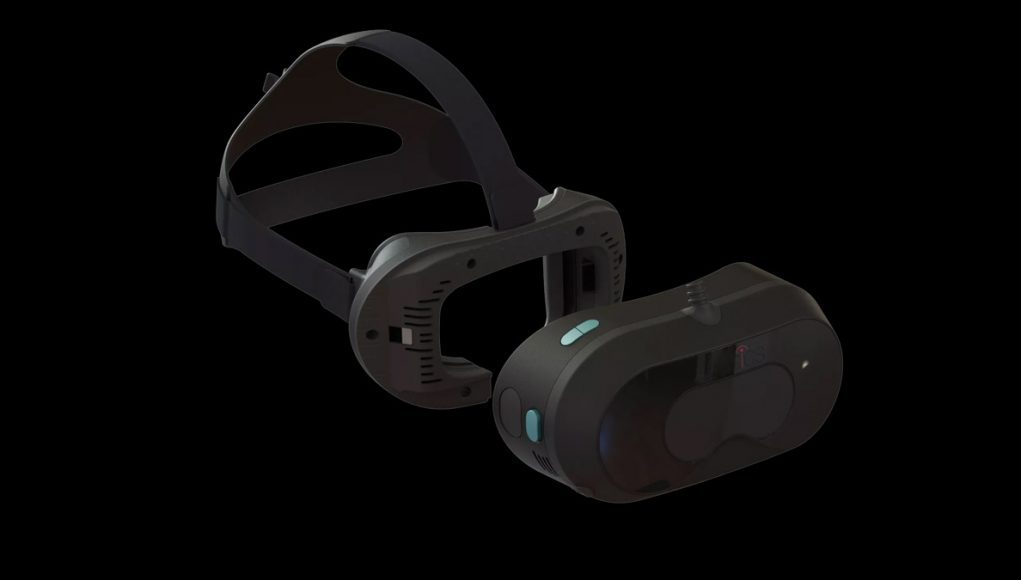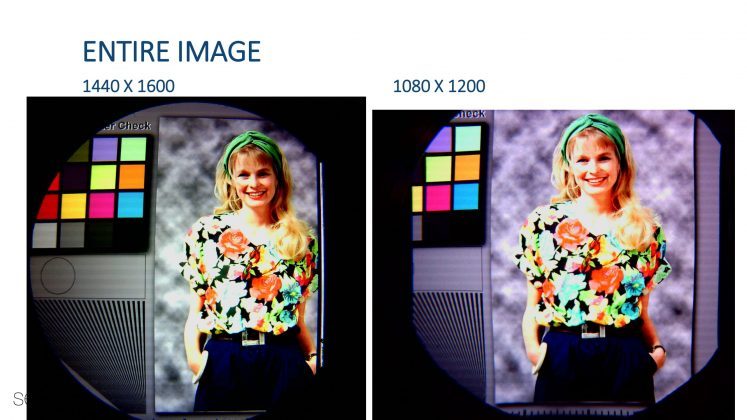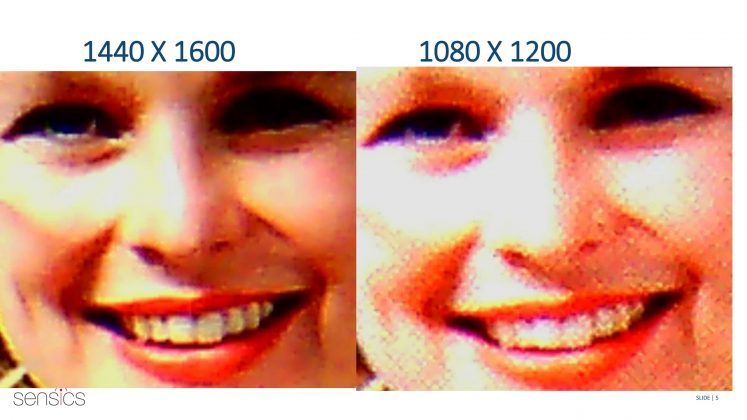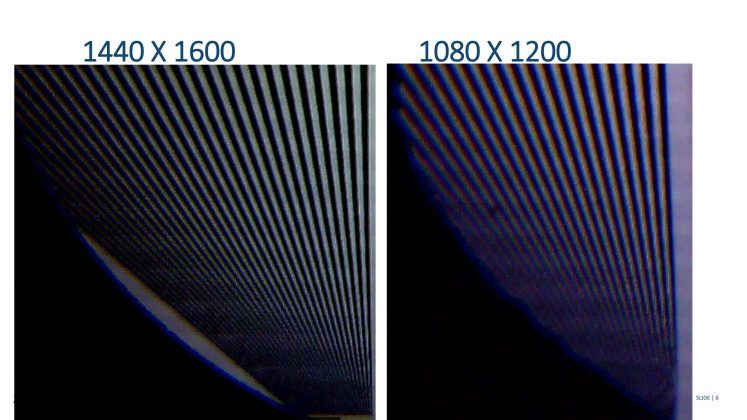Sensic, a long-time player in virtual reality and co-founder of OSVR, finally released their VR headset destined to make its way to public venues such as theme parks and arcades. Teasing the project late last year, the enterprise-facing headset is touted to be more hygienic, comfortable, and pack a higher resolution display than consumer devices.
Sensics, a co-founder of Razer’s OSVR initiative which produced the HDK headset, has a pretty specific approach on how out-of-home VR headsets should differ from their consumer counterparts.
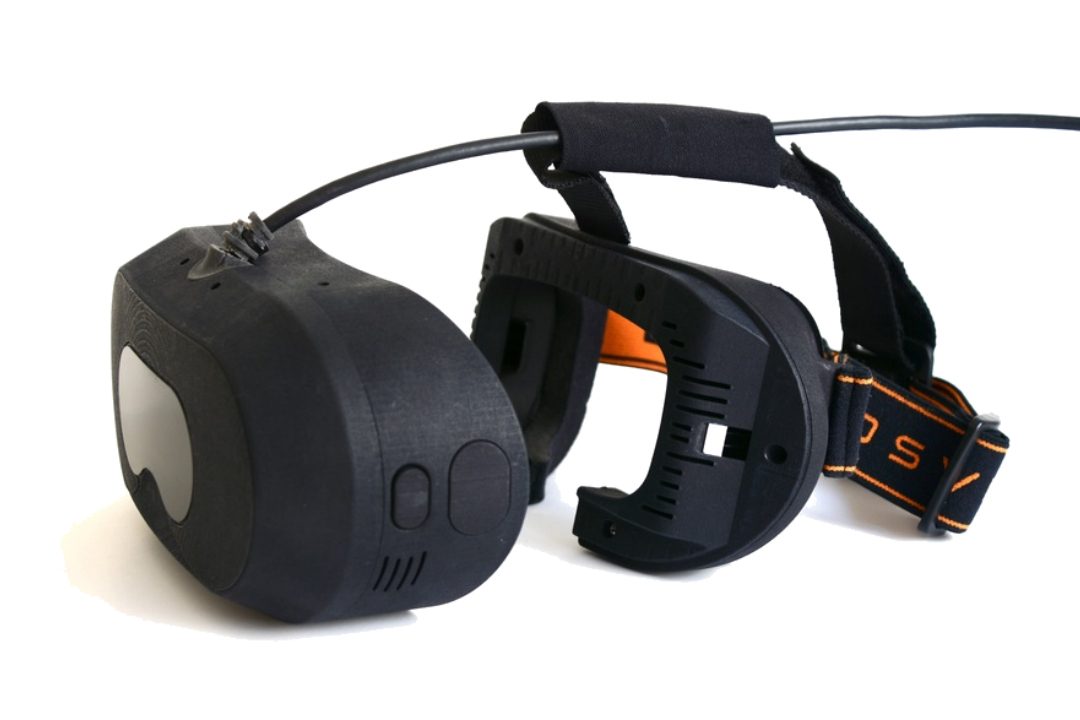
Firstly, there’s hygiene. Sensics includes a machine-washable, hypoallergenic face mask that physically separates from the display, allowing for arcade-goers to strap in, get comfortable and have a chat (or selfie) before clipping into the display portion of the headset. This essentially cuts down the amount of lead time by letting customers prep before heading into their VR experience. More importantly, Sensics says the inexpensive strap can be set aside after each guest is done and sanitized for later use. If you’ve ever tried a VR headset after someone sweat in it, soaking right through the spongy foam gasket and headstrap, you can imagine how bad it would get in a facility that sees multiple customers daily.
That said, customers are going to sweat, and mitigating these effects during the experience with dual fans, which Sensics says are silent, helps remove excess humidity from the headset, keeping lenses clear from fog.
As for resolution, the company maintains the screen door effect (SDE) is diminished with the headset’s dual 1440×1600@90 Hz LCD displays, a 70 percent increase in pixels over consumer devices like Oculus Rift and HTC Vive. We haven’t had an opportunity to substantiate the reduction of SDE, but the company provides as comparison chart between its lower tier dual 1080×1200 OLED, which happens to be the same resolution as Rift and Vive.
Arcade and park owners can also opt to include embedded hand/finger trackers like Leap Motion, which sits flush inside the unit behind a window that’s transparent to IR.
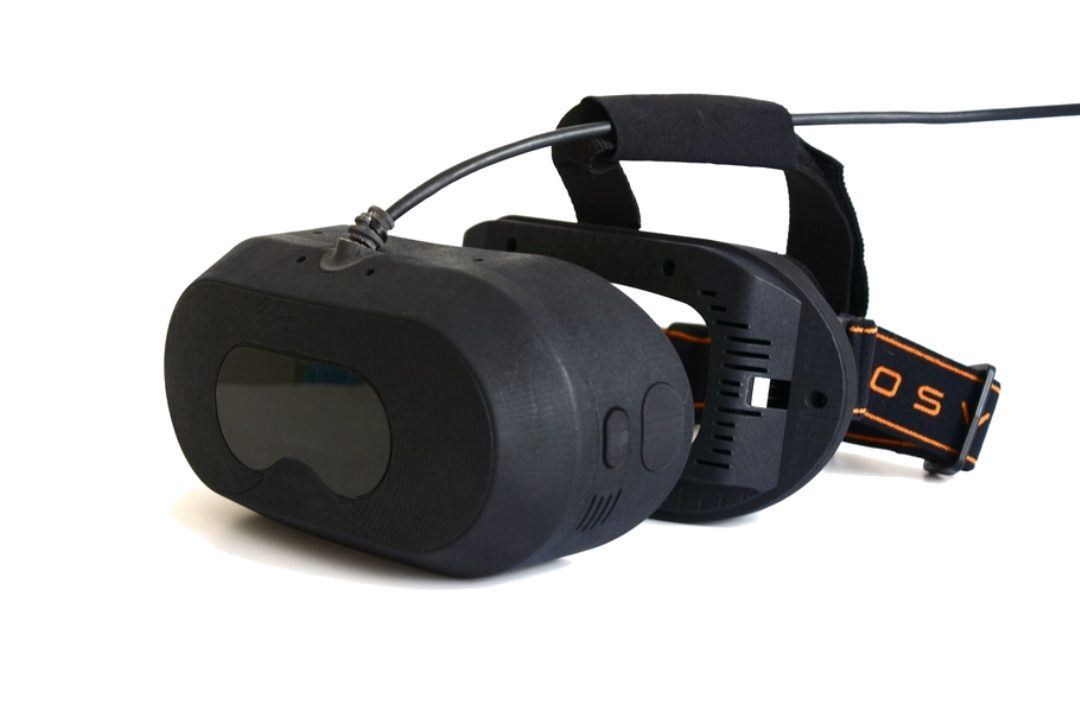
The public VR headset is also said to work with “hundreds of peripherals including wide-area tracking systems.” The press release announcing the headset doesn’t make specific mention of what positional tracking system it employs, saying only that it integrates a 9-axis orientation tracker, something headsets use for basic head-tracking only. Aftermarket solutions like OptiTrack’s IR-reflective positional tracking system, which uses traditional motion capture tech, would be a likely candidate for large-scale, out-of-home facilities looking to use Sensics system however.
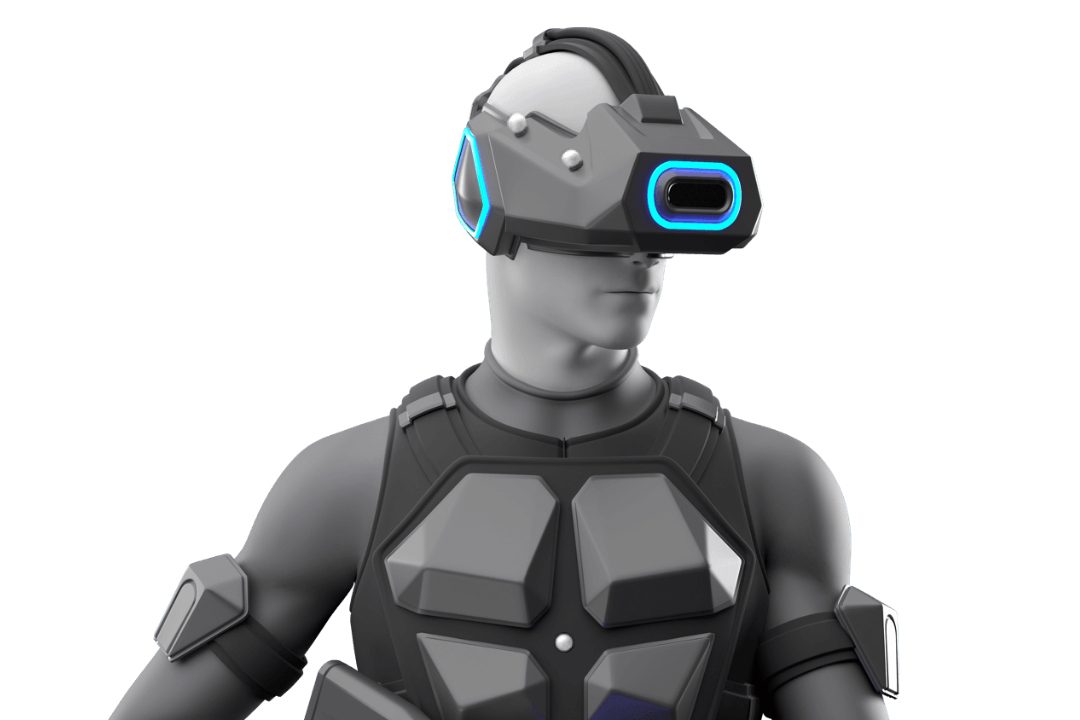
Pre-production units are currently on sale on the OSVR Store in two flavors: a $2,590.00 headset with 2880×1600@90 Hz LCD display, and the lower tier $2,160.00 headset with 2160×1200@90 Hz OLED display. Large quantities of the final device are slated to ship later this year.
Specs
- A choice of two screen options: 2880×1600@90 Hz LCD, or 2160×1200@90 Hz OLED including diffusion film for reduced SDE
- Removable face-plate
- Built-in dual silent fans to comfort and ventilation
- Front IR window for optional embedded Leap Motion controller
- High-quality 100-degree optics with adjustable focus
- Integrated 9-axis orientation tracker
- On-unit buttons for user interface (disabled in pre-production units)
- Ergonomic and adjustable head strap
- Supports direct mode and asynchronous time warp
- Supported by all major game engines including Unity, Unreal and more

